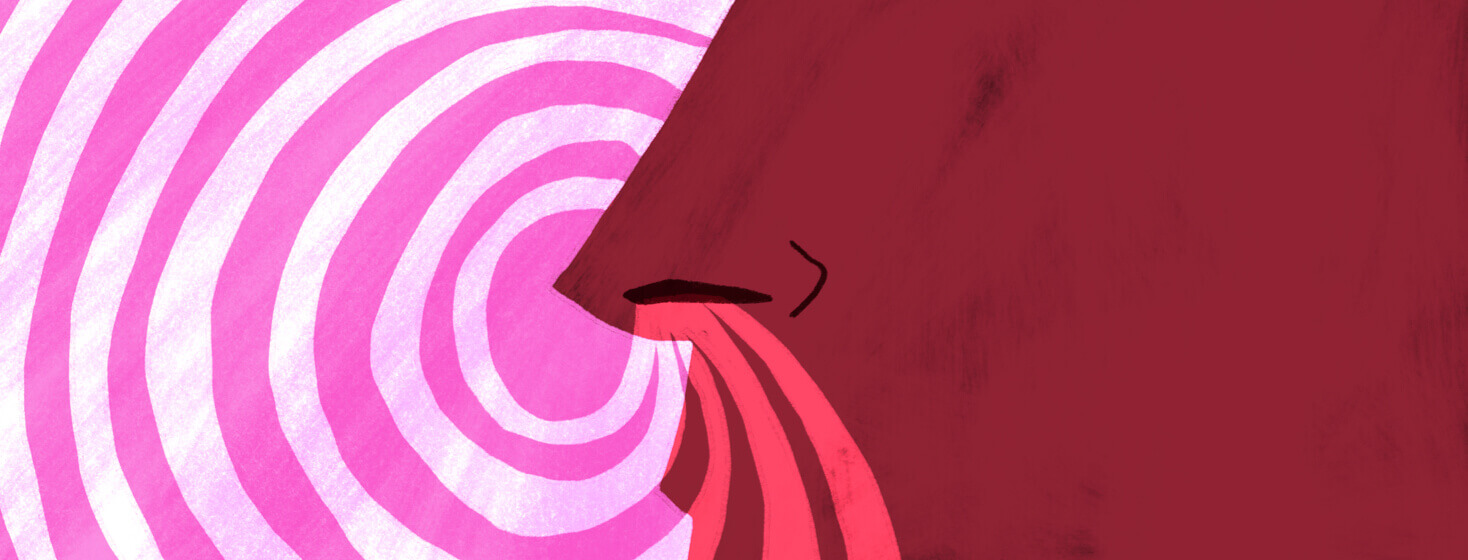Sinus Problems or Dry Mouth With PAP? Blow Them Away With These Tactics
Sinus issues, sneezing, burning sensation in my nose – what's a PAP user to do?
When I started my journey way back at the dawn of time, there were limited options for treatment or therapy for sleep-disordered breathing. Back then, we didn't have anything but a large CPAP machine, mask choices were limited, and humidification was not even a thought.
If you were struggling with your treatment therapy, you were mostly on your own to figure it out and with limited options. You often had to suck it up and make do. This is no longer the case.
Sinus problems are more common than you think
I see and work with a lot of people who complain about issues with their sinuses, sneezing, and even a burning feeling when they start their PAP therapy. Sometimes, a change in mask is what you need. Other times, you may need to deal with allergies or use a sinus rinse. Many users – especially new users – are already overwhelmed and are unsure where to start, what to do, or even if this is normal or not.
You should always start by speaking with your doctor. They can look for and find any medical issues that may be causing you problems, and though I have some ideas and tips, nothing can replace a doctor.
The role of PAP therapy
With that out of the way, let's think a bit about what the PAP machine is doing. The machine is taking your room air, compressing it, and then pushing it into your airway at a set pressure not just to open your airway but to keep it open. Seems straightforward, right?
As a new user and someone in the medical field, I didn't think this sounded like it could be such a big deal to my nose and mouth. Yet when you think about it, it makes sense that it can be an issue.
Mask style can make a difference
First, you take in the room air and compress that down into a nice little concentration to blow right into your airway. I tend to think of it as having a box fan in your full-face mask, with some of that going into your mouth and some into your nose. If you are using a nasal mask, it's like having a box fan blowing up both nares, but it's backed off a bit. If you have a pillows style mask, in my mind, that's like having 2 box fans blowing and stuffed right up your nose.
When you think of it like that, it makes sense that you would have a few issues. Of course, your airway gets dry and irritated. For some people, the solution is as simple as changing their mask style.
Consider allergens in the room air
If the room air being compressed by your machine has allergens, now you are blowing concentrated allergens right into your respiratory system. It's a wonder more people don't sneeze or have a reaction. If you suffer from allergies, you should probably work with an ENT about what medications you may need to take.
Also, come allergy season, you may need to change your filters more often or get a HEPA filter for your room. I actually have a small, extra disposable HEPA filter in line with my CPAP, which I find really helpful as it catches the smaller particles that the main PAP filter may miss.
Check your CPAP machine's comfort settings
Working with your comfort settings (we have a great article: Making the Most of Your CPAP Machine Comfort Settings), you can increase your heated humidity. This can help your nose and mouth not feel or become as dry as the Sahara wind blowing through it.
Make the most of your humidifier
Some of our community members have posted some tips about keeping a bit of extra water by the humidifier if it runs dry so they can add more in the middle of the night.
This can be a problem in a dry climate and especially in the winter. Machines have gotten smaller and so have the humidifiers. For some of us, they just don't hold enough water to get us through the night.
Over-the-counter options for dry mouth
Other members have mentioned taking XyliMelts or Biotene (both available over the counter) if they have persistent dry mouth that didn't get better over time. These items and others like them help increase saliva production.
However, you may want to check out our article, Living With Sleep Apnea: Dry Mouth Is Not Always From CPAP, to make sure that your dry mouth is not due to something else.
Sinus rinses can help clear mucus and allergens
Many of our members mention using a sinus rinse. Irrigating your sinuses can help clear away excess mucus and any allergens hanging out in there.
I find that I must switch from my nasal mask to a full-face mask if I have a cold. With my high pressures, any excess mucus I have will be pushed into every nook and cranny of my sinus cavity, and I end up with a sinus infection.
A sinus rinse helps me some if I have a minor cold; it's just not enough when I have excessive mucus in my nasal passages. I don't like a full-face mask, yet I keep one on hand for such occasions. I find that switching my mask has decreased my sinus infections.
Have a tip? Share with our community!
Having issues with your sinuses, sneezing, and dryness is not uncommon for many. Don't let that discourage you. Talk to your doctor. Try some of these tips, and feel free to post and ask questions here. Our community members are always willing to help with what's worked for them.
Tell us about your sleep apnea story and share a comment.

Join the conversation